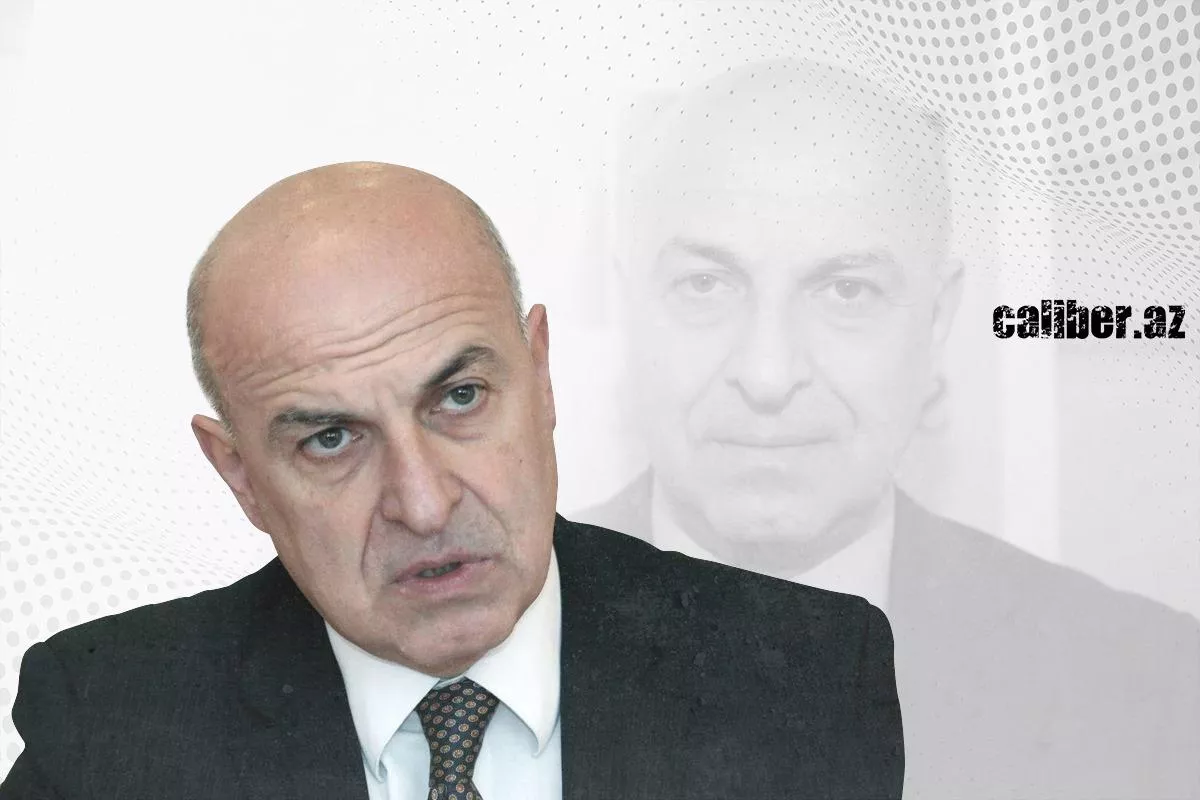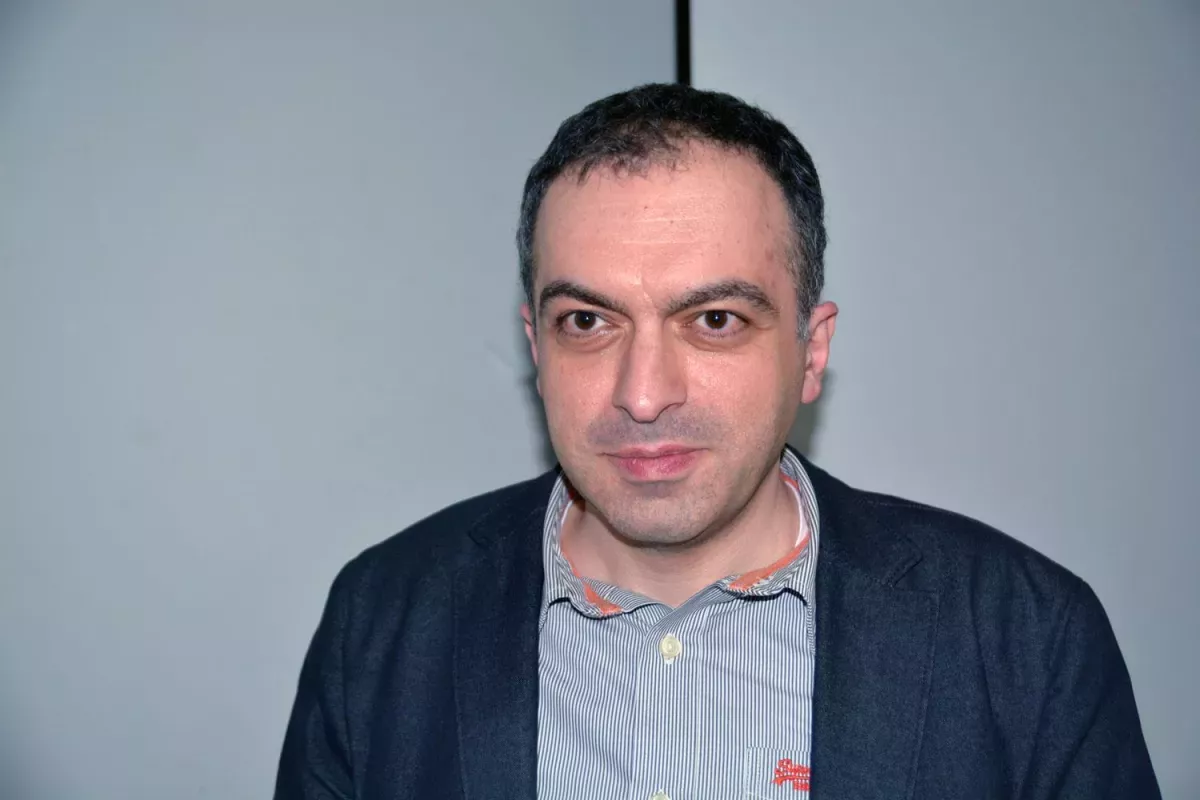Georgia's European choice: Tensions and optimism ahead of elections Expert insights
Tens of thousands of Georgian citizens took to the streets on October 21, for a pro-European rally ahead of the country’s parliamentary elections. The demonstration, under the slogan "Georgia Chooses the European Union," saw participation from Georgian President Salome Zourabichvili, with the event organized by the NGO "Georgia’s European Orbit" and the coalition "My Vote for EU."
Some analysts believe that this rally could mark the beginning of a series of large-scale opposition marches, expected to continue until election day on October 26.
Caliber.Az reached out to Georgian political analysts to explore the intensity of the political confrontation in Georgia.

According to Valeri Chechelashvili, a Georgian diplomat, former Deputy Foreign Minister of Georgia, and former Secretary General of the Organization for Democracy and Economic Development (GUAM), the civil rally in support of Georgia's integration into the EU took place in a peaceful and positive atmosphere. "People were singing European anthems and were hopeful for change," he remarked.
"There is growing optimism that the Georgian opposition will be able to present significant competition to the 'Georgian Dream' and even vie for leadership. Observing the participants of the rally, it became clear that support for Georgia's European path comes from a wide range of social groups, with a noticeable generational gap – young people, middle-aged, and elderly citizens were all present," noted the political analyst.
He added, "No other politicians spoke at the rally, only our President, Salome Zourabichvili, and we fully support her position. The authorities, for their part, did everything to ensure the rally took place in a comfortable environment, all necessary conditions were provided."
Chechelashvili said the West is not inflaming tensions in Georgia but is simply pointing out that the Georgian Dream has exhausted all opportunities for advancing closer ties with the European Union. The West, he explained, merely wants the Georgian public to make an informed choice: if Georgia aims to integrate into Europe, then the government must change. If not, the format of relations between Brussels and Tbilisi will shift accordingly.
“Then Georgia will simply turn from a privileged strategic candidate for EU accession into an EU partner, of which Brussels has many. We are openly told that the choice is solely up to the Georgian people - depending on what choice they make, this is how we will be treated in Europe. This is a very clear message and everyone hears and understands it very well. I don't think that this can be called any kind of pressure from the West, rather it is just bringing clarity and understanding to the situation. For Georgia, 26 October is not a choice of any political party, political preferences, it is a choice of what kind of country we want to live in,” Chechelashvili stressed.

According to Professor Tornike Sharashenidze, head of the Master’s Program in International Relations at the Georgian Institute of Public Affairs (GIPA), some Western forces are almost openly hinting that they would prefer the ruling party to lose the elections and are supporting the opposition. However, about a week ago, the US Ambassador to Georgia publicly stated that they would respect the choice of the Georgian people and work with whichever party wins the elections.
“Meanwhile, the ruling party also seems to be in search of consensus - for example, it makes it clear in its statements that after the elections it will reset relations with the West in order to improve these relations. But with the proviso that it will resist in every possible way attempts to drag Georgia into war, while continuing to develop pragmatic relations with Russia. The ratio of forces today is about 50/50, but given the fact that the Georgian opposition is fragmented and there is a possibility that one of the opposition parties will not pass the five per cent threshold, we can say that the ruling party has a good chance of winning the upcoming elections,” the political analyst believes.
Sharashenidze even though the elections in Georgia are less than a week away and it is unlikely that the political preferences of the public can change dramatically during this time, the results of the elections in Moldova can also harm the EU's position in Georgia.
"Because everyone saw how Moldova was being presented as an example of successful reforms on the path to European integration, but suddenly it turns out that this is not entirely the case. In my opinion, there is no dangerous disunity in Georgian society; the disunity, as I mentioned earlier, is more within the Georgian opposition. Georgian society is more polarized, and this polarization stems from the early 1990s, after the civil war in Georgia. If it weren’t for the 'foreign agents law,' I think there would be no issues in choosing the leading political force in Georgia at all. In my view, many forces, including those in the West, have long accepted that the Georgian Dream will remain in power for a fourth term. However, despite the logic of events, they lobbied for controversial laws, which only undermined their authority in the country. Without these laws, there would have been no protests in Georgia or any increase in the influence of the opposition," Sharashenidze noted.
"In my opinion, if the elections proceed in a normal environment and no one in the West has reason to question their conduct, Europe and the US will be ready to accept the victory of the Georgian Dream and engage in dialogue with the winning force. Simply because the overall situation with democracy in the country is positive: the opposition has its own television channels, and no one is shutting them down, and elections in Georgia, for example, are conducted in a special electronic format. I don't expect any heated incidents in front of the parliament; the situation is generally normal and calm. In particular, OSCE observers have been in Georgia for over a month now, and in their reports, they note that the parliamentary election campaign is taking place without incidents and that there are no grounds for concern," Sharashenidze concluded.








